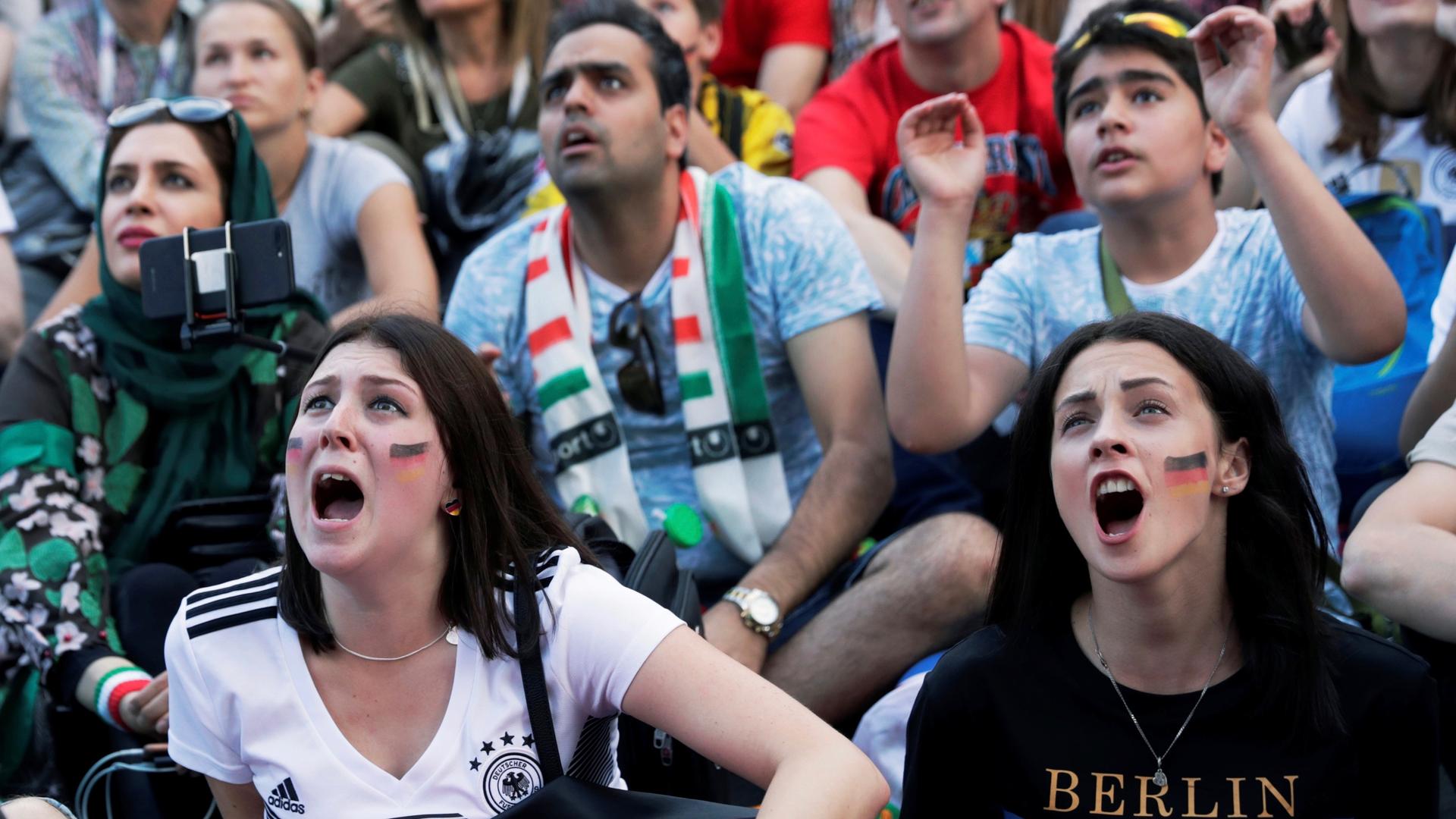How soccer became multilingual
Fans watching the Germany-Mexico FIFA World Cup game at a fan fest in Saint Petersburg, Russia on June 17, 2018.
Do you know what Hawaiifootball means? Or vrouwen en kinderen eerst? Or andar aos papéis?
As it happens, they mean roughly the same thing. They are terms used to describe a chaotic moment or phase in a soccer match, in Nowegian, Dutch and Portuguese respectively.
Vrouwen en kinderen eerst is Dutch for “women and children first.” Andar aos papéis is Portuguese for “walking on papers.” Hawaiifootball is Norwegian for … Hawaii football, whatever that means. (Volcanoes erupting? Shark attacks? Norwegians, please let us know!)
While none of these expressions has entered the English language yet, there’s every chance that one of them might, given the right circumstances. It’s happened to dozens of other words and phrases that English has imported from languages around the world.
Journalist Tom Williams tells me about this in the latest World in Words episode. He’s compiled a glossary of soccer terms in his new book, “Do You Speak Football?”
Podcast Contents
1:01 The beginnings of soccer’s multilingual glossary.
2:15 A soccer skill with no name in English (but a great one in French).
2:55 The “cow dribble” explained.
4:35 Where rabona comes from, and what it means.
5:00 New skill moves get English-language descriptions online…
6:30 …like, “the mousetrap.“
8:45 Those terms for chaos.
9:45 Theories about Hawaiifootball.
11:15 The pleasures of watching matches with the original language commentary.
11:45 Adoration for Mo Salah in Arabic.
12:50 For Americans rooting for Mexico, some Spanish terms.
Listen to the podcast by clicking the play button above. Better yet, subscribe at Apple Podcasts.
